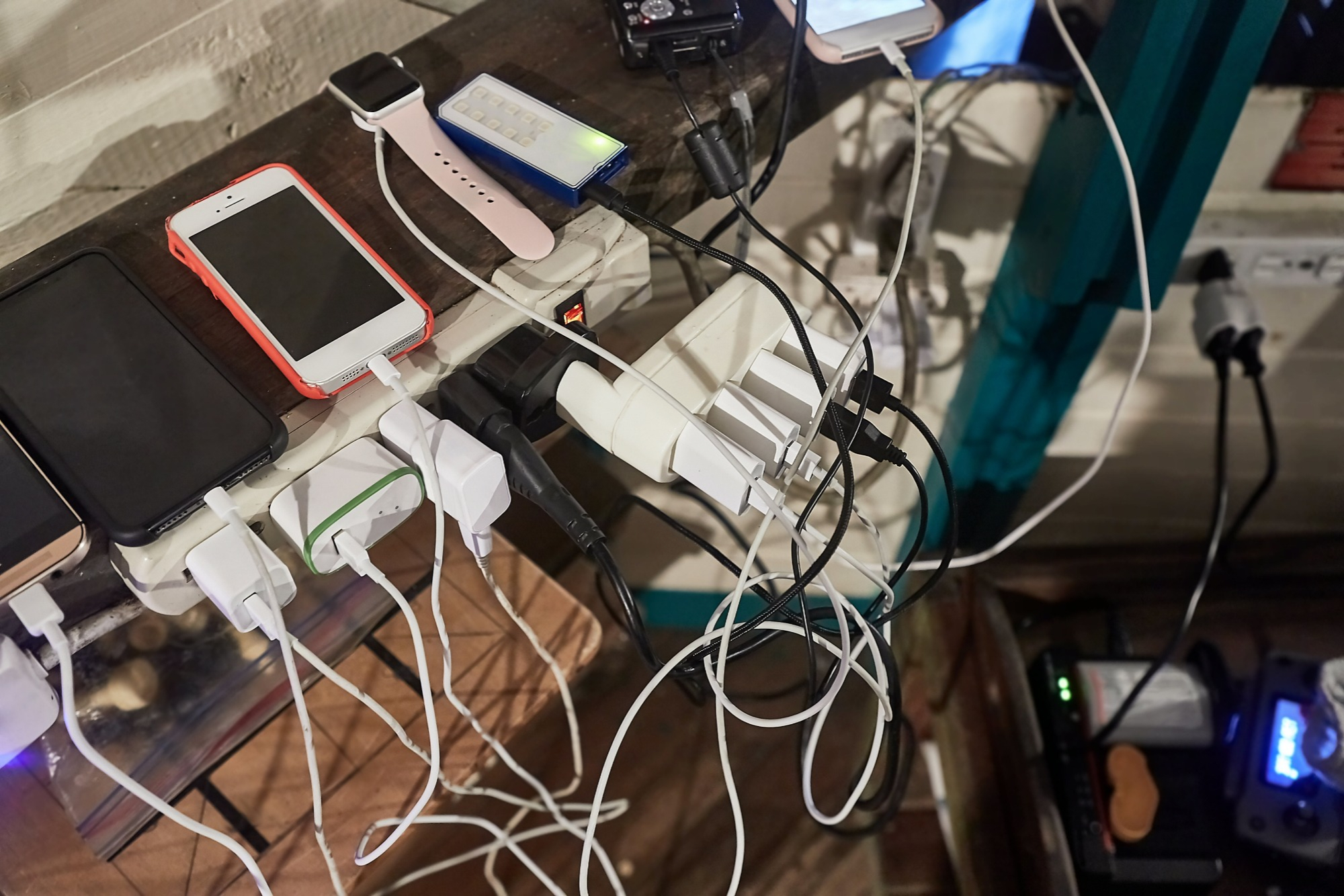

Getting a new smartphone is undeniably exciting. A new model typically comes with a better camera, faster processing, more storage, a better screen and more. However, all of this constant smartphone turnover is wrecking havoc on the environment, especially when it comes to disposing of older phones. A study from 2018 predicts that smartphones and data processing centers will be the most environmentally damaging part of the communications sector by 2040.
While there are options for recycling smartphones, phones and other waste electrical and electronic equipment (WEEEs) aren’t recycled for a variety of reasons.
[Related: We need safer ways to recycle electric car and cellphone batteries.]
An estimated 5.3 billion mobile phones will be thrown out in 2022, according to the WEE Forum and the UN’s Global E-Waste Monitor. For context, that many unused phones would rise about 31,000 miles into the air when stacked on top of one another. When items like laptops and cellphones are thrown into landfills, they leak toxic chemicals into the environment.
Today, the WEE Forum in partnership with the United Nations Institute for Training and Research (UNITAR) Sustainable Cycles (SCYCLE) Programme released results of surveys conducted by the WEEE Forum to investigate why so many electronics fail to be repaired or recycled. The surveys were conducted from June to September 2022 and included 8,775 European households in six countries (Portugal, the Netherlands, Italy, Romania, Slovenia, and a separate United Kingdom survey).
It found that the average household contains 74 e-products such as phones, tablets, laptops, electric tools, hair dryers, toasters and other appliances. Of that 74 average total e-products, 13 are being hoarded, meaning nine go unused but work and four are broken.
The most commonly hoarded small EEEs are small consumer electronics and accessories like headphones and remote controls, household equipment like clocks, information technology equipment, mobile and smartphones, and equipment for food preparation.

Some of the reasons respondents gave for holding on to WEEE ranged from might needing it in the future (46 percent), sentimental value (13 percent), to not seeing any incentive to recycle (1 percent).
[Related: You throw out 44 pounds of electronic waste a year. Here’s how to keep it out of the dump.]
“We focussed this year on small e-waste items because it is very easy for them to accumulate unused and unnoticed in households, or to be tossed into the ordinary garbage bin. People tend not to realize that all these seemingly insignificant items have a lot of value, and together at a global level represent massive volumes,” said Pascal Leroy, Director General of the WEEE Forum in a press release. “The producer responsibility organizations in the WEEE Forum that manage the collection of e-waste are constantly working to make the proper disposal of small e-waste simple and convenient for users and households.”
A UN thought paper also released today describes global ideas and options for reducing the global e-waste problem, including setting universal recycling standards and legal standards.
Additionally, recycling WEEEs can recover some valuable material such as gold, copper, silver, and palladium that can be reused in other items. Some of the best ways to get ride of a smartphone at the end of its life are giving it directly to the phone’s manufacturer, a retail store, or even donate it to a charity to refurbished. There are also multiple ways to up-cycle an old cell phone, by turning it into an alarm clock, security camera, or an e-reader.
